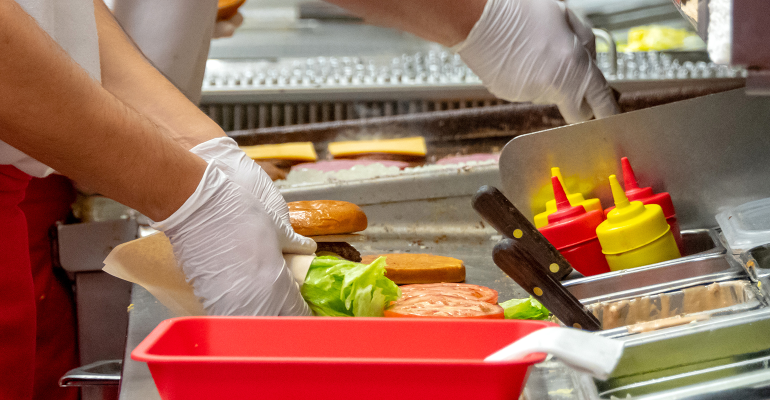And so it begins. California’s implementation of a landmark increase in minimum wage for fast-food workers from $16 to $20 takes hold today, and it’s far from an April Fools’ jest.
This is a long-debated and highly anticipated move against a backdrop of the state's ongoing economic challenges. From Lisa W. Miller & Associates’ proprietary research, the state of California has already been outpacing economic concerns. Throughout the first quarter of this year, 66% of consumers in California reported pulling back on going out due to high prices, and 69% said getting restaurant food delivered had gotten too expensive. This is compared to 63% and 64%, respectively, of consumers across the country at large.
Californians’ appetite for higher wages is waning as the implications collide with reality. The data shows a significant difference in California compared to the total U.S.
- 39% of Californians agree that ensuring fair compensation for restaurant workers through higher minimum wages is more important than maintaining lower dining costs (versus 43% across the total U.S.)
- 44% of Californians are supportive of minimum wage increases for restaurant workers, even if it means higher costs for dining out (versus 50% across the total U.S.)
As the anticipated big day is now a reality, Californians give early indications of the possible negative unintended consequences of these laws — from the expectation of more layoffs to higher menu prices. From March data that just came in last week:
- 50% of Californians are concerned that laws that force higher pay for restaurant workers will cause more layoffs (versus 43% of total U.S. consumers)
- 65% are concerned that laws that force higher pay for restaurant workers will drive menu prices higher (versus 59% of total U.S. consumers)
While the increase in minimum wage for California’s fast-food workers is slated to raise incomes, it also casts shadows of concern across the workforce. Twenty-one percent of workers in California are worried about job loss, a figure that stands five points higher than the national average.
This anxiety is not unfounded. Operators grappling with higher labor costs are resorting to reducing employee hours or headcount. The fast-food industry, known for its adaptability and efficiency, could increasingly lean into technological solutions such as self-service kiosks, automated cooking systems, or even AI technologies. Could what started as a push for fair pay end up backfiring?
Why it matters
While it is only an early indication, the data suggests a cautious or even skeptical outlook among Californians toward the wage increase. About half (52%) report they will dine out less frequently if restaurants increase their prices due to higher minimum wages.
And can you blame them?
Many operators are already implementing additional price increases, and leaving consumers stuck with the tab. It is perfectly predictable that when the value equation flips upside down, guests start to further question if it is worth their money. The message is clear: Consumers are unwilling to shoulder the burden of continued increased prices unless the value — the experience itself — is significantly enhanced. For business operators, the challenge is a delicate balancing act of upholding employee welfare while also elevating the customer experience in an ever-changing economic landscape.
We know you can’t have your cake and eat it too.
Survey data was collected among a balanced sample of Americans 18+ years old; Q1 N=3,000 and March 19-26, 2024 N=1,000
 AUTHOR BIO
AUTHOR BIO
Lisa W. Miller has over 30 years of consumer insights and innovation experience collecting nearly a million consumer interviews qualitatively and quantitively. Lisa conveys excitement, hope and real hands-on tools to revamp organizational goals and growth. She strategically transforms companies and improves bottom-line results by using the “DNA” of the Business of JOY.
Lisa is a 3-time EFFIE Winner for Advertising Effectiveness, recipient of the David Ogilvy Research Award, and is an expert in consumer insights.
Lisa is the author of the book, The Business of JOY, based on over 55,000 consumer interviews and countless hours spent interviewing business leaders and frontline employees. It gives a 360-degree view of the pandemic — translating insights into an actionable framework for the future. Lisa’s data became a leading indicator of economic recovery. According to Lisa, “Economic recovery and growth begin when JOY is greater than Fear.”

